Are you eager to kickstart your career as a React developer? Landing your first React job can be an exciting but challenging journey. With the right skills, mindset, and approach, you can make this transition smoother and more successful. In this guide, we’ll walk you through the steps and strategies to help you secure your first React job.
Mastering the Basics
Before you embark on your job search, it’s crucial to have a solid foundation in React. Make sure you’re comfortable with:
- JavaScript: A strong grasp of JavaScript fundamentals is essential for React development.
- ES6+ Features: Familiarize yourself with modern JavaScript features like arrow functions, destructuring, and spread/rest operators.
- React Core Concepts: Understand components, props, state, lifecycle methods, and hooks. Learn about these here.
- JSX: Get comfortable with writing JSX, which is a syntax extension for JavaScript.
- Component Lifecycle: Know how components mount, update, and unmount.
Building Projects and a Portfolio
The best way to demonstrate your React skills is by building real-world projects. Start with small applications and gradually work your way up to more complex ones. Here are some project ideas to consider:
- To-Do List App
- Weather App using a public API
- E-commerce Website
- Blogging Platform
- Social Media Feed
Once you have a few projects under your belt, create a portfolio website to showcase them. Provide detailed descriptions, code snippets, and live demos. This will serve as a tangible representation of your skills for potential employers.
Contributing to Open Source
Contributing to open-source projects is a fantastic way to gain experience and visibility in the developer community. Look for React-related repositories on platforms like GitHub. Start with smaller tasks like fixing bugs or improving documentation. As you gain confidence, you can take on more substantial contributions. To learn more about how to contribute to open-source projects, visit this article.
Networking and Community Involvement
Building a network in the React community can open doors to job opportunities. Attend local meetups, workshops, and conferences. Engage with the community on platforms like Twitter, Reddit, and Stack Overflow. Join React-related forums or Slack channels. These connections can lead to mentorship, collaborations, and even job referrals.
Preparing for Interviews
Once you start applying for jobs, be prepared for technical interviews. Practice common React interview questions and be ready to explain your projects in depth. Familiarize yourself with industry best practices, such as:
- Component Composition: Understand how to break down UI elements into smaller, reusable components.
- State Management: Learn about libraries like Redux or Context API for managing global state. To learn about State Management in React visit this article.
- Routing: Know how to implement routing in a React application using React Router. To learn about React Router visit here.
- Testing: Familiarize yourself with testing libraries like Jest and React Testing Library. To learn about testing in React visit here.
Showcasing Soft Skills
In addition to technical skills, employers also look for soft skills in their candidates. These include:
- Communication: Clearly articulating ideas and solutions.
- Problem-Solving: Demonstrating the ability to troubleshoot and find creative solutions.
- Teamwork: Collaborating effectively with other developers, designers, and stakeholders.
- Adaptability: Being open to learning new technologies and methodologies.
Highlight these skills in your resume, cover letter, and during interviews.
Where to Find React Job Opportunities
Now that you’re well-prepared, it’s time to start your job search. Here are some places to look for React job openings:
- Job Boards: Websites like LinkedIn, Indeed, and Glassdoor list numerous job opportunities.
- Company Websites: Many companies post job openings directly on their websites.
- Freelance Platforms: Consider platforms like Upwork or Freelancer for freelance opportunities.
- Networking Events: Attend events or meetups where you can connect with potential employers.
Conclusion
Getting your first React job requires dedication, continuous learning, and a proactive approach. By mastering the basics, building a portfolio, contributing to open source, networking, and showcasing both technical and soft skills, you’ll be well on your way to landing your first React job. Remember to stay persistent and keep honing your skills as you progress in your journey as a React developer. Good luck!

